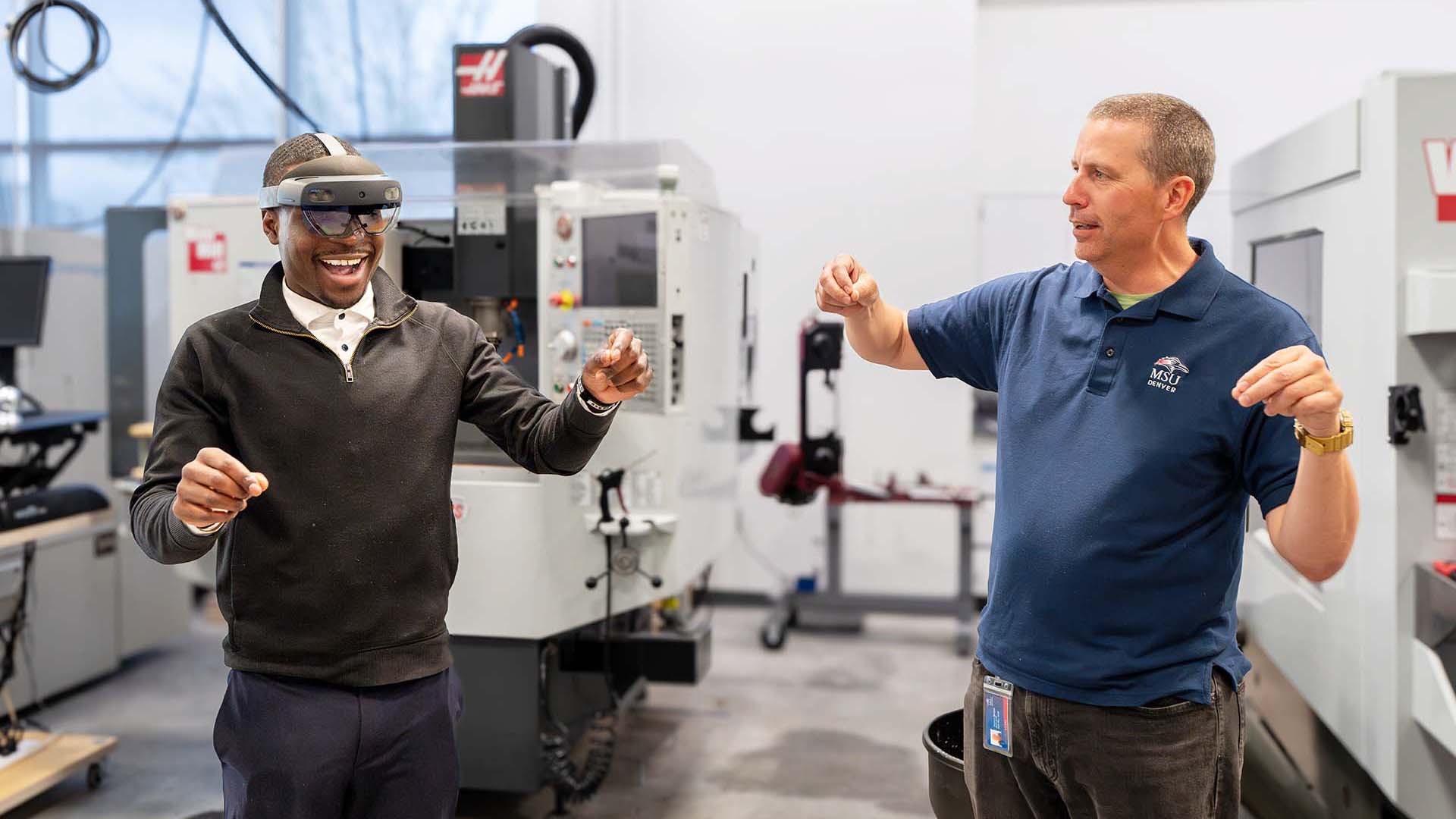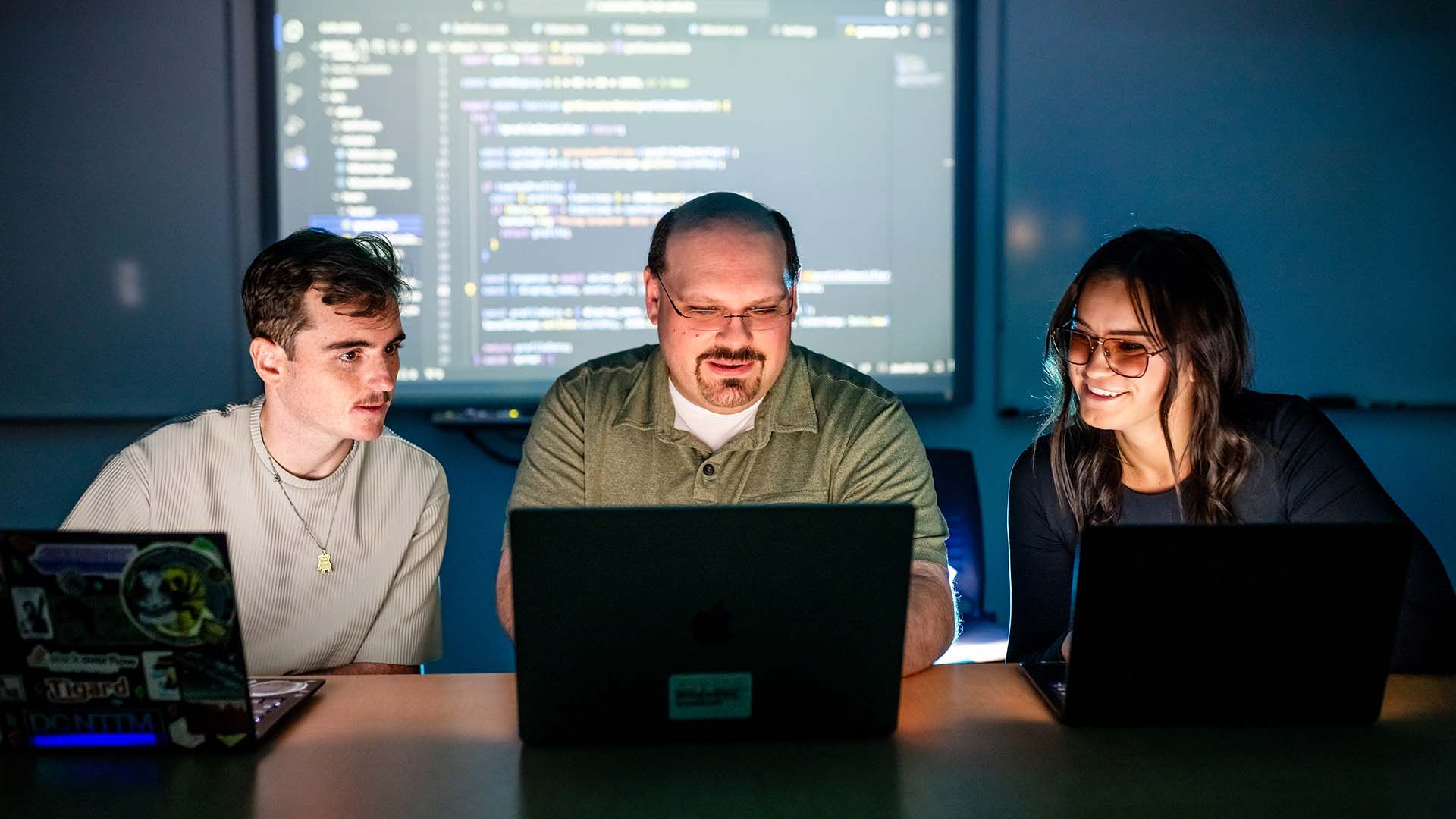Welcome to the Fourth Industrial Revolution
This unprecedented era of technological development is about to change our lives.
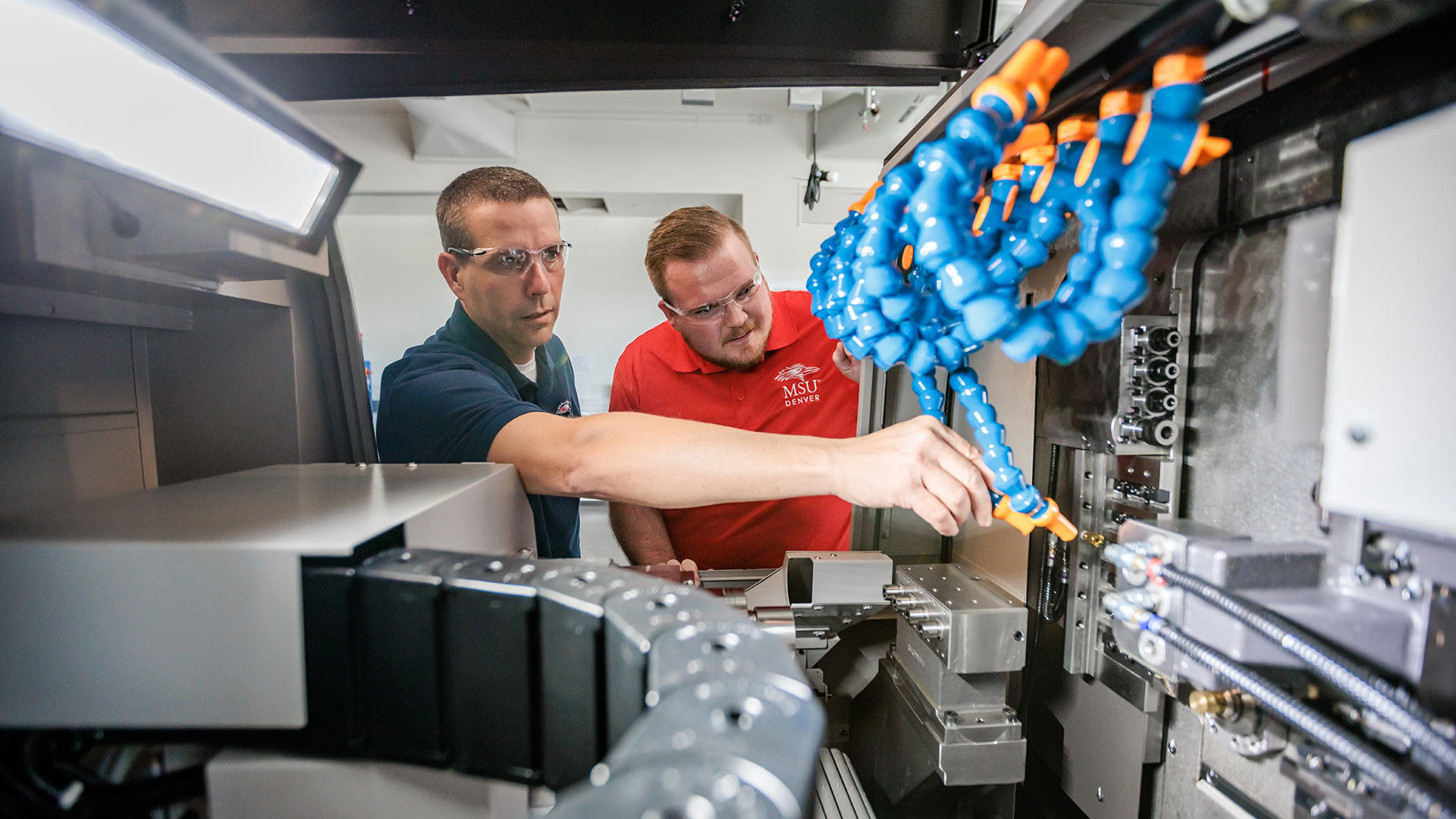
This story appears in the winter 2022 issue of RED Magazine.
You can’t see it yet, but the future just landed smack-bang in the middle of downtown Denver.
As the pace of technological advancement surges across the United States, Metropolitan State University of Denver has partnered with other higher-education institutions on the Auraria Campus to create the Industry 4.0 Center of Excellence. And like a spaceship freshly touched down on campus, the center is set to open up new worlds of opportunity.
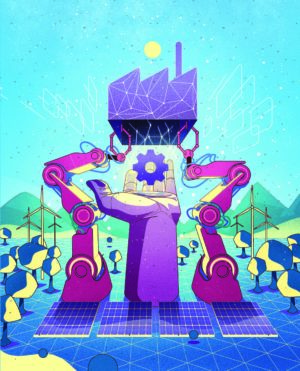
“The potential benefits are enormous,” said Mark Yoss, director of MSU Denver’s Advanced Manufacturing Sciences Institute, itself a cutting-edge facility filled with state-of-the-art equipment. “By leveraging and upgrading the existing tools of AMSI with even newer technologies, this new center will give our students a world-beating education, while also offering expert training to local businesses.”
The Fourth Industrial Revolution, often called “Industry 4.0,” is a moniker for the sweeping technological change happening in the world right now. Klaus Schwab, the global economist who coined the term, memorably said: “Given its speed, scope and unprecedented impact, 4.0 is unlike anything humankind has experienced before.”
RELATED: New advanced-manufacturing center aims to strengthen workforce and supply chains
“I think Schwab was right,” Yoss said. “The first three industrial revolutions — geared around steam, electricity and then computing — basically involved a single technological advance. But 4.0 has more than 10 distinct elements, each one of which is expanding exponentially all the time.”
Smart Work
The Center of Excellence represents a serious investment for MSU Denver — a projected $2.2 million over five to 10 years — and there’s good reason to catch the 4.0 wave.
Recent dizzying advances in areas such as artificial intelligence, robotics, augmented reality and the Internet of Things have disrupted manufacturing and numerous other industries and are transforming the whole way we work.
Smart factories, for example, use real-time data from the factory floor to radically improve efficiency. “Interconnected technology can enable 500 disparate people to work seamlessly together toward the same goal, almost like a single organism,” Yoss explained.
On automated production lines, where malfunctions are time-consuming and costly, predictive AI software monitors machine performance and diagnoses potential problems before they happen.
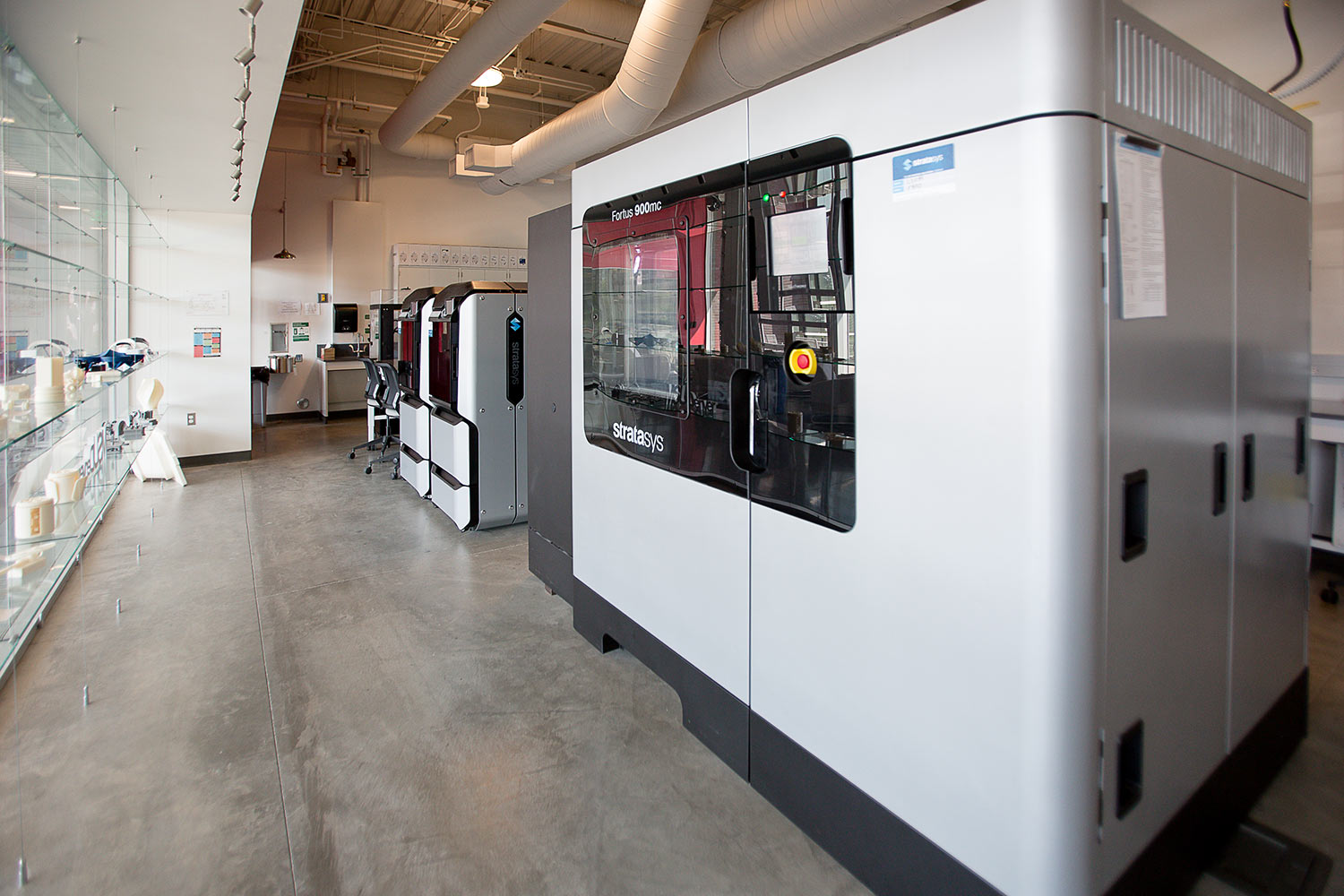
Augmented reality will be the first area of focus at the new center. Stephen Morgan, industry lab coordinator at AMSI, couldn’t be more excited. “The deeper I get into our augmented-reality project, the more its possibilities and potential uses open up,” he said. “Working on something so completely new gives you the sense of being an explorer.”
How does AR work? Suppose you need to learn how to operate a complex machine. Morgan’s advanced software can create a “digital twin” of it. Then, using augmented-reality glasses, you can see the actual machine and the overlaid digital version at once, as well as real-time instructions on how to use it.
Morgan described it as a “total game-changer” that lets you deliver the right information at exactly the right time to the end user, whether that’s a student, repair technician or doctor.
Support for students and industry
Another great feature of the Industry 4.0 Center is that it will further bolster AMSI’s track record for helping students find rewarding jobs with top Colorado employers.
Steven Finch, who graduated from MSU Denver this year with a degree in Advanced Manufacturing Sciences and a concentration in Mechanical Engineering Technology, said his career prospects were boosted by AMSI’s relationship with local businesses. He was propelled straight into a job with Ball Aerospace.
“One of the best things about the program is the exposure it gives students to exactly the kind of new technology and techniques that local business partners want,” Finch said. “We all feel empowered to excel in our chosen fields.”
Yoss is confident that the program provides students with the skills they need to become productive players in a rapidly expanding industry, which includes new job titles such as digital twin architect, collaborative robotics specialist and factory automation engineer.
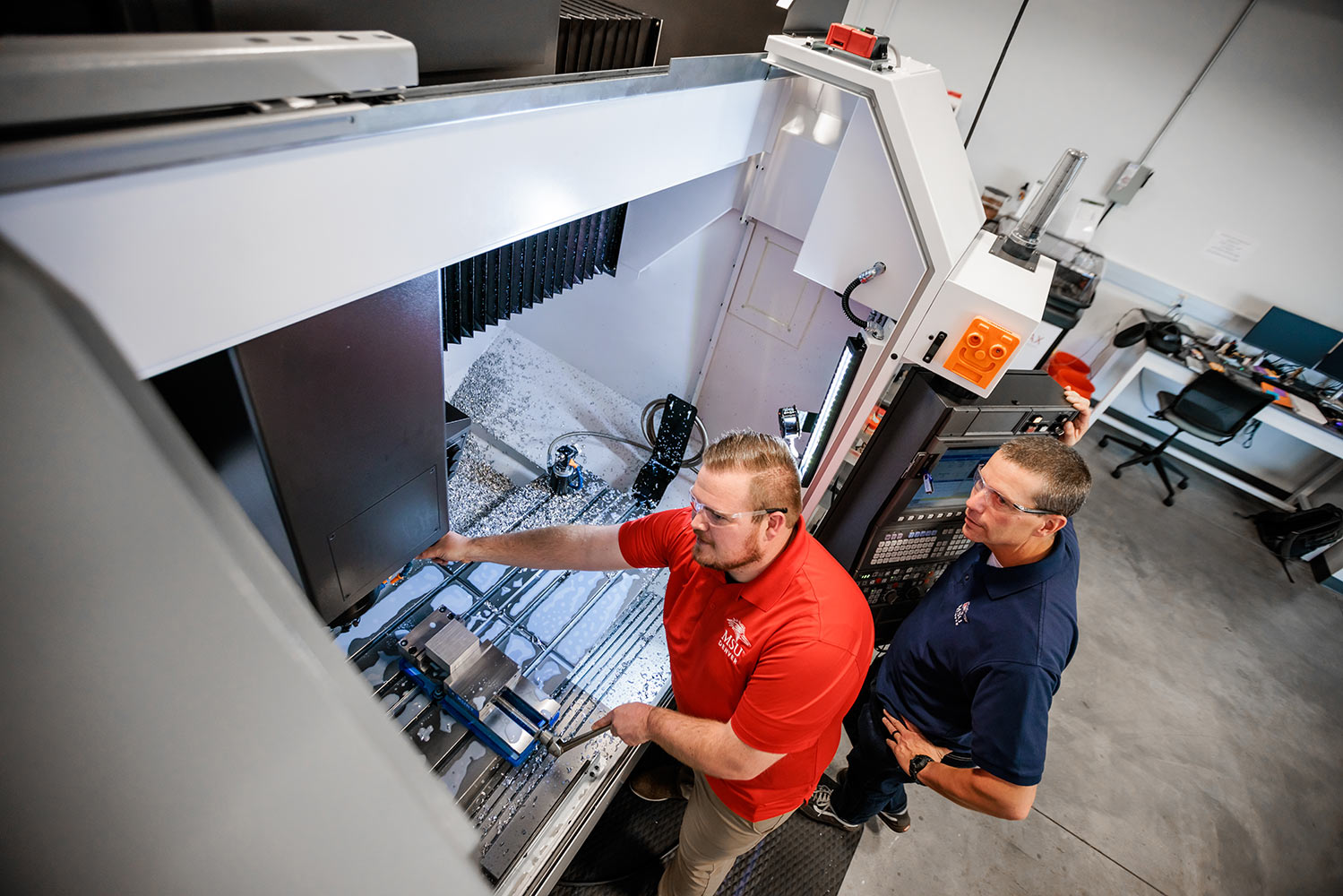
The pay is good, too. The average starting salary for MSU Denver spring graduates in the field was $76,000. But Yoss said it’s about more than just the money.
“Studying advanced manufacturing puts students on a path toward a rewarding career in a really interesting industry, which is also genuinely looking to make everyone’s lives better,” he said.
Besides helping students, the new center will invite local manufacturing companies to train their workers in the latest technology. It’s support they sorely need.
“Digital transformation projects in the Denver area are currently failing 80% of the time,” Yoss said. “Our plan is to show employees from these companies how to do things right, so they can get back out there and start to succeed.”
That expertise won’t come free, of course. Companies will have to pay for the support. Yoss said the center will create a new revenue stream for the University, while also blurring the lines between the campus and the community.
Back at the lab, Morgan is also looking forward to welcoming outside players. “The best part of my AMSI job is working with colleagues, students and industry partners to solve big problems,” he said. “When the new center brings in more partners, that’s only going to create more momentum to help tackle these tough challenges.”
The future is now
Yoss said most people don’t realize how quickly the pace of technological progress is moving. We might imagine that the stuff of sci-fi movies is years away, but some current tech would fit easily in a futuristic film.
He cited a scene in the movie “Iron Man,” where the main character is manufacturing something in his lab, and an AI cognitive assistant has projected a digital model and controls all the welding and drilling machinery.
“Iron Man doesn’t really have to do anything,” Yoss said. “He’s more like an orchestra conductor. And well, that’s something we’re quickly moving toward.”
Over the next few years, we should expect 4.0 technology to make increasing inroads into our everyday lives. Yoss said that before long, rather than having products delivered by Amazon, people with 3D printers will be able to order a product, hit “print” and have it built right in their homes.
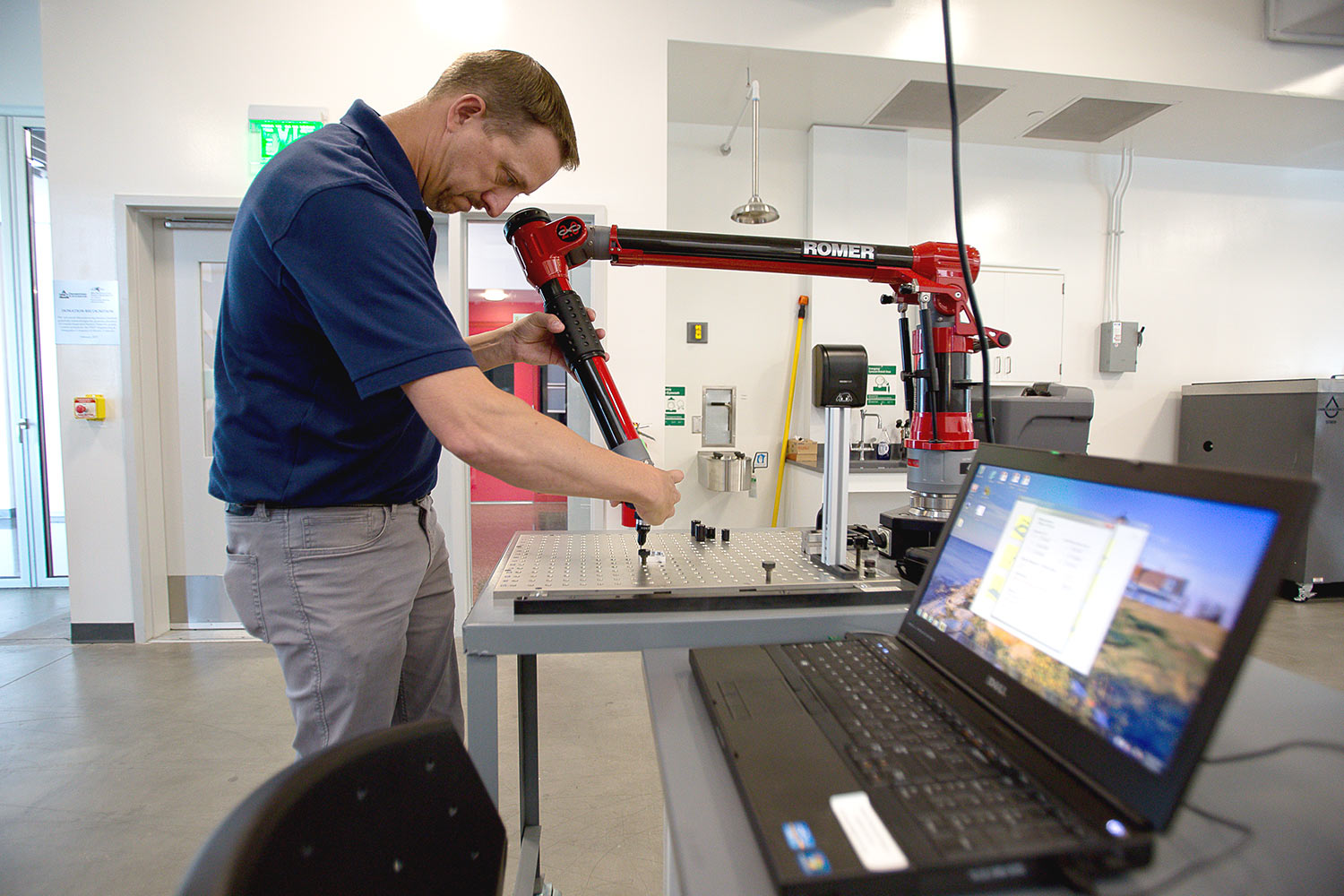
The rapid advancements of Industry 4.0 have also provided something of a makeover for the manufacturing profession, which has traditionally been viewed as unglamorous.
“All the new technologies and machines have absolutely revolutionized our industry, making it much faster, safer and cleaner,” said Finch, the recent MSU Denver graduate.
And popular, it turns out. As innovations keep coming, companies have a growing need for skilled workers with advanced manufacturing credentials. Finch said there’s great demand for a workforce ready to implement these exciting changes. And he recommends his area of study to friends as a safe bet.
“It’s a no-brainer,” he said. “This is a fascinating industry where there will always be a constant stream of interesting and well-paid work. I can’t recommend it highly enough.”

